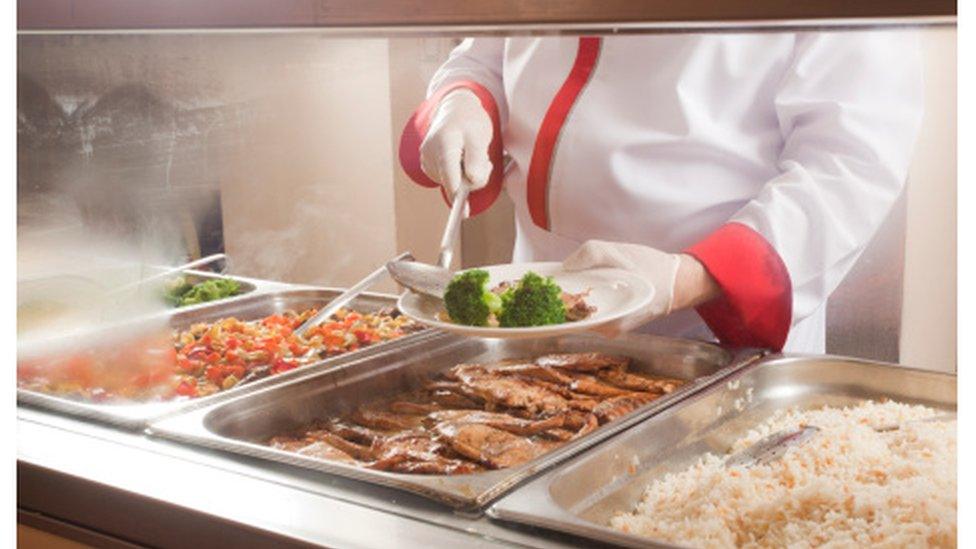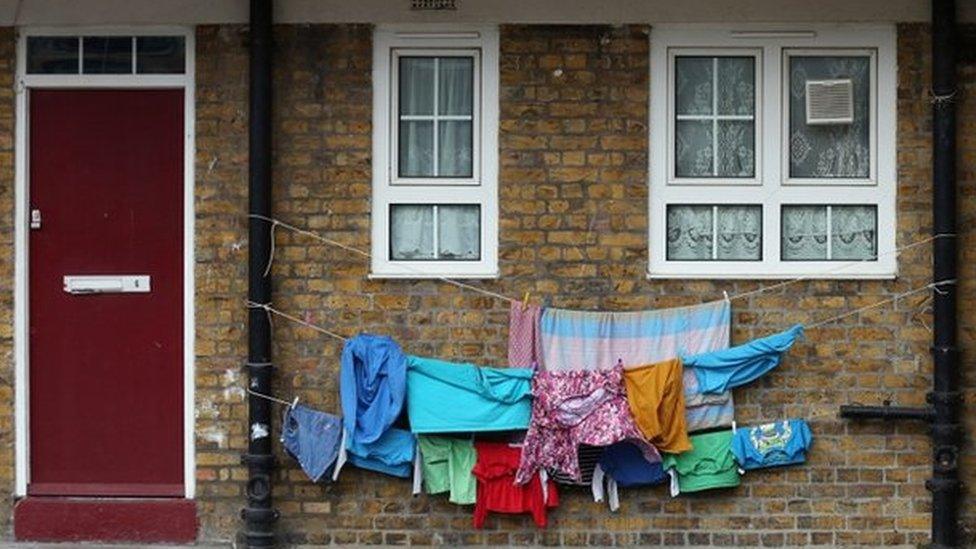Pupils' hunger 'worse in school holidays'
- Published

Pupils who rely on free school meals can face hunger during the school holidays say teachers
Pupils who rely on free school meals can face hunger in the holidays, a teachers union conference has heard.
The Association of Teachers and Lecturers annual conference has voted to lobby for more and better holiday schemes which include meals.
"We risk returning to a Dickensian era rife with inequality," said ATL general secretary Mary Bousted.
The government said its provision of free school meals for infant pupils had helped boost their learning.
Food banks
John Puckrin, a teacher from central London, said a recent report from food banks provider, the Trussell Trust, showed a 21% increase in demand during the school holidays.
"For many the school holidays provide a chance to relax and enjoy new experiences, meeting new people, going to places, perhaps different cultures and languages, the chance to grow their 'cultural capital' or improve sporting skills.
"But for the poorest it is often a closed in isolating experience with a lack of any positive stimulation," Mr Puckrin told the conference.
Janet Blanchard, from Nottinghamshire, said bored and hungry children could "get up to mischief or get into trouble".
And Niamh Sweeney, a delegate from Cambridgeshire and Peterborough said the issue had made her weep.
"The number of people relying on food parcels has not been higher since the Second World War.
"A dangerous combination of low and unreliable income, multiple part-time jobs, benefit cuts and sanctions and the inability to pay bills from this income has, in every part of the country, brought an unprecedented hunger.
"In 2016 there are people for whom going hungry on a daily basis is now almost inevitable.
"You know you have children in your own school and class who come to school hungry and go home not knowing when they will next have another meal."
Ms Sweeney warned that hungry pupils found it hard to learn.
"And what happens in the holidays? Children and families get hungrier," she said.

Extracurricular activity in the school holidays is not an option for all
She said family applications for referrals to her local food bank in Cambridge "rose during the months of January and February possibly related after the Christmas slump and significantly again in July and August when the school kitchens were shut".
"The city council has seen a significant increase in applications for holiday club provision but only for those sessions where food is provided."
She said community and church groups who helped families feed their children were filled with "utter horror" that they needed to do it.
Free school meals
Of 400 ATL members who took part in a survey for the union, 38% said pupils suffered from physical health issues over the summer break and 26% said pupils children went hungry over the period.
Almost half the staff (49%) said the summer break negatively impacted pupils' mental health.
The Department for Education did not directly address the issue of holiday hunger, but said its policies meant 1.3 million more children received a nutritious free meal at lunchtime, saving families hundreds of pounds.
"To ensure more children have a nutritious breakfast as a healthy start to their school day, we announced £10m funding a year as part of the Budget to expand breakfast clubs in up to 1,600 schools starting from September 2017," a spokesman said.
"Free school meals play a key role, giving children fuel for learning, and we continue to work with both councils and schools to encourage take-up."
- Published27 March 2016
